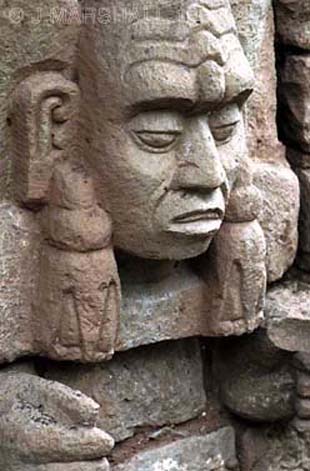
Allen Andersson, a U.S. Peace Corps volunteer in Honduras in the 1960s who went on to be a Washington entrepreneur, donated $100,000 to the march to end illegal logging
Honduran marchers decry logging
Protesters dedicated to ending illegal logging in their province have attracted attention and support inside and outside Honduras.
BY CATHERINE ELTON
Special to The Herald
TEGUCIGALPA - His step was short and slow, but the Rev. Andrés Tamayo's broad, toothy smile radiated as he led 3,000 peasants last week to the finish line of a 100-mile protest march.
From octogenarians to young children, the marchers accompanied the Catholic priest on a seven-day march to the Honduran capital to demand an end to illegal logging in their forested province of Olancho -- and the government corruption that they say fuels it.
The march underscored how age-old demands for an end to some of Latin America's traditional social ills -- corruption, poverty and inequality -- are gathering steam under movements that link environmental degradation and underdevelopment.
''What we are seeing is that as the natural resources of the country are pillaged, the very lives of the people are more precarious, weak, their standards of living drop, and their lives are more limited,'' Tamayo told The Herald.
The Environmental Movement of Olancho that Tamayo leads began in the pine forests of Honduras' largest province but is growing and making strategic allies in other parts of the country. Hundreds of marchers joined his contingent in the capital to add their demands that the government address the environmental degradation caused by gold mining and shrimp farming in their communities.
The Olancho movement is also garnering support from the United States.
$100,000 DONATION
Allen Andersson, a U.S. Peace Corps volunteer in Honduras in the 1960s who went on to be a Washington entrepreneur, donated $100,000 to the march and attended it as part of a U.S. delegation that included Hollywood actor Mike Farrell, Kennedy family activist Kathleen Kennedy Townsend and Rep. Maurice Hinchey, D-N.Y.
The Center for International Policy, a Washington-based think tank, organized the delegation and is also using Andersson funds to work with Tamayo and his organization.
CIP Director Robert White, a former U.S. ambassador in neighboring El Salvador, said he believes the movement has the potential to save much more than trees in Honduras.
''Something like 75 percent of Hondurans say they'd prefer a dictatorship to democracy if they could just have enough to eat and a roof over their heads,'' White said. Civic action like Tamayo's march, he added, ``will demonstrate that when democracy is properly funded and organized, it can overcome the power structure and win battles of broad interest to the Honduran people.''
Another reason Andersson and White chose to support this movement as a democracy-strengthening vehicle is Tamayo. A small man in big glasses whose humble figure belies his feisty character, Tamayo's organizational and oratorical skills make him a César Chávez and a Martin Luther King rolled into one, White said.
The day after the march ended, Honduran President Ricardo Maduro's government sent a list of commitments to the march leaders. The government promised to audit and root out corruption in the forest institute and to restructure the government office that oversees mining, among other initiatives.
KEY DEMAND
Yet the proposal did not address one of the marcher's key demands for a total moratorium on logging.
''The timber industry is one of the principal contributors to the national economy. A moratorium would violate the rights of companies logging lawfully here and would leave 120,000 people without jobs,'' said Gustavo Morales, general manager of the government office that manages forests.
The head of the timber industry association agreed.
'No one in their right mind would declare a moratorium on timber. That would be a political response to the marchers' demands, not a scientific one,'' said Roberto Babun, president of the Honduran Timber Association.
This impasse over the moratorium could well heat things up back in Olancho.
''If the government doesn't declare a moratorium on logging, the communities are going to implement it on their own,'' said Tamayo. ``And while we refuse to use violence, we are prepared to defend our resources with our lives.''
